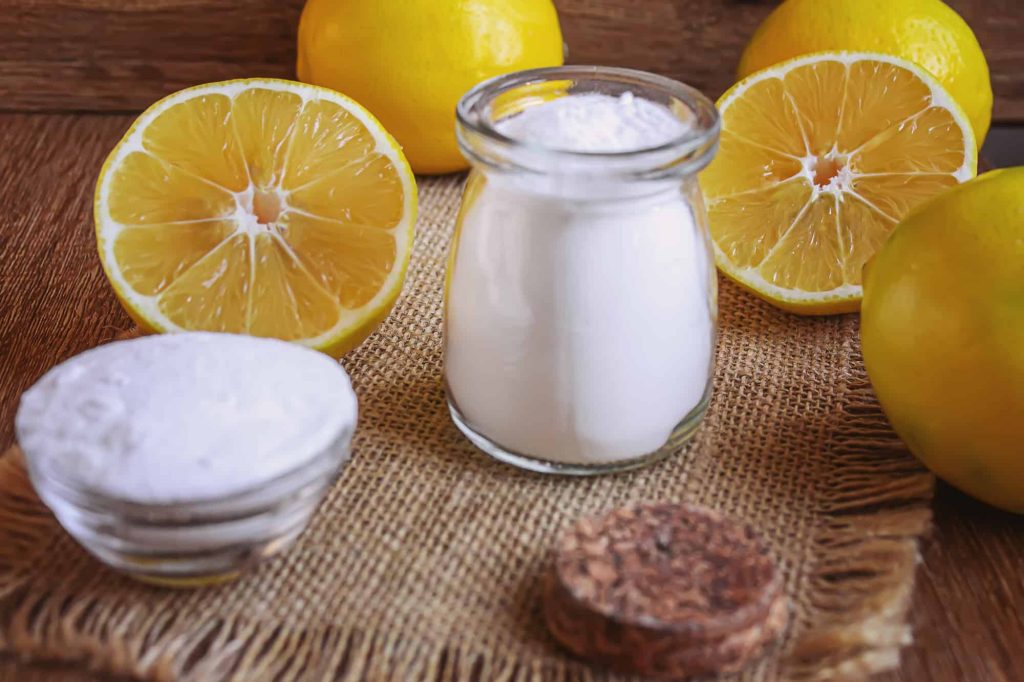Is there, by any chance, that citric acid is not gluten-free? Let’s find out in this article!
Citric acid is generally gluten-free and is considered generally recognized as safe (GRAS) by the FDA. There are two forms: anhydrous and monohydrate. When buying one that is produced from fruits, it is recommended to get a non-GMO one or an organic one.
What can you use citric acid for and what brands are gluten-free? Learn this and more below!
Is Citric Acid Gluten Free?
Citric acid is gluten-free (source: Arizona Campus Health). Gluten is made of several prolamin proteins. Most of the time, it is found in wheat but is also present in oat, rye, and barley (source: Nutrients).
Citric acid is an acid found in citrus fruits. It is naturally present in plant and animal tissues. It can also be made through mycological fermentation (a fermentation process using fungi) using Candida spp. or by extracting it from a liquor fermented by Aspergillus niger (source: Code of Federal Regulations Title 21).
There are two types of citric acid: natural and artificial or man-made. You can buy it as anhydrous or monohydrate where both are crystallized salts. Its uses include being used as an antioxidant, flavoring, preservative, medical use, cosmetic and personal care ingredient, and cleaning agent.
Citric acid is classified as generally recognized as safe (GRAS) when used as a food additive (source: Chemical Safety Facts). You can find it online or at the supermarket in the cooking or baking aisle.
If your citric acid is made from fruits, make sure that a non-GMO label is present on the packaging (source: Dr. Axe).
Is Citric Acid Gluten Free When Listed as an Acidity Regulator?
Citric acid is gluten-free when used as an acid regulator. Here are some brands of it and whether or not they’re free from traces of gluten:
Ball
Ball citric acid has no indication or certification of being gluten-free. However, its listed ingredient list only has citric acid and silicon dioxide which is an anti-caking agent and is also gluten-free like citric acid (source: Arizona Campus Health).
Millard
Milliard citric acid is a certified gluten-free product. It is also non-GMO.
Other Encapsulated Citric Acid
Encapsulated citric acid can perform like a curing agent in foods. This type of acid is encapsulated or enclosed in hydrogenated vegetable oil. Hydrogenated vegetable oil is gluten-free, as long as the oil of choice is gluten-free itself.
Citric Acid E330
Citric acid E330 is gluten-free (source: Food Sweeteners). E330 is a monohydrate type of citric acid. It is a crystal form, tastes sour, and has a concentration of 99.5-101.0%.
Its most common use is in the food and beverage industry as an acidulant, chemical preservative, flavoring agent, and anti-spoiling food ingredient. It gives a sour and tart flavor in carbonated beverages, powder mixes, fruit-flavored drink products, jams, jellies, sherbets, candies, or wines to complement the fruit flavors present in each (source: Prospector).
Citric acid is generally a gluten-free ingredient, but we still recommend reading the product label because it might be produced in a facility that also processes wheat. We hope this helps!
After exploring the gluten-free properties of citric acid and its versatile applications, let’s shift our focus to another key ingredient: lemon juice. Curious whether lemon juice is also gluten-free? Explore our detailed analysis to find out!


![Is Citric Acid Always Gluten Free? [What to Look For] A small glass jar filled with gluten-free white powder is placed on a burlap surface, surrounded by halved and whole lemons. A small bowl containing similar citric acid powder is nearby, with a cork lid lying beside it.](https://cuisineseeker.com/wp-content/uploads/2023/02/citric_acid_-768x512.jpg)




Comments are closed.